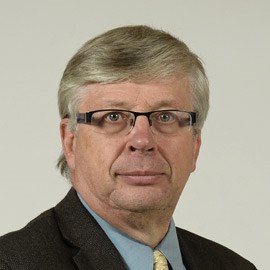One of the most bizarre reactions from Saskatchewan conservatives this summer was their cheering over new Premier Doug Ford reducing the size of Toronto city council.
Whether there are, indeed, too many Toronto councillors is tough for us to out here to determine.
But if one agrees solely based on Ford’s belief that voters have never said we need more politicians, this is a very inconsistent position for many.
Notwithstanding its purported belief in smaller government, it was the conservative-minded Saskatchewan Party government who increased our legislature by three MLAs to 61 members prior to the 2016 election.
It’s also the belief of the Sask. Party government and its supporters that we don’t need to reduce local rural municipal government because things are just fine.
Suffice to say, there is a lot of inconsistency here … not to mention a little outdated thinking.
For example, if the government is demanding more efficiency by reducing health governance and administration, shouldn’t the same thoughts be applied to RMs where a dwindling rural farm population makes the need for a council for every 36-square mile block rather outdated.
Let’s accept, at least for the moment, the Saskatchewan Association of Rural Municipalities’ yet-to-be-substantiated argument that low-paid local reeves, councillors and RM administrators remain more efficient and less costly than a large county system like in Alberta.
And let’s further accept the more important argument that more rural reeves and councillors are actually what the people want.
But does that automatically mean we are getting the best possible representation at the rural municipal level right now?
Shouldn’t we at least consider ways of helping RM reeves and councillors do their jobs better?
Consider the biggest issues facing local rural politicians right now – issues like environmental regulations and rural crime.
It’s tough for politicians to effectively deal with these issues at any level, but the issues are even tougher when you represent a small jurisdiction of only a couple hundred people.
One thing that could benefit local, rural politicians is more training and guidance similar to what the Saskatchewan Urban Municipalities Association provides. SUMA even makes available to them “summer school” classes on everything from media relations to conflict management.
As part-time politicians, one can see why RM representations would have neither the time nor inclination to partake in such training. After all, the day-to-day worry for many RMs is still graving and gravelling.
That said, things have become increasingly complex in local government administration _ especially when it comes to conflict resolution for RMs butting up against urban settings.
This has long been an issue in RMs like Corman Park and Sherwood just outside of Saskatoon and Regina, respectively. The latter has had significant political upheaval over land development issues.
However, we are now seeing similar issues moving into other near-urban RMs – the most recent example being McKillop, where there’s a pitched battle between local farming interests and those of cottage owners on the east side of Last Mountain Lake.
After petitions to local RM council and the provincial government over democratic representation issues that will likely be settled in the courts, things have gotten even uglier this summer. It was learned last month that McKillop ratepayers will face huge tax increases of as much as 76 per cent over what many are claiming has been questionable RM spending.
So serious is the matter Government Relations Minister Warren Kaeding has appointed Carol Ingham, a former public administrator, to “undertake a high level look into the general operations of the RM,”
Such issues are increasing at the RM level. At the very least, reeves and councillors need better tools to handle them.
Clearly, some things need to change at the rural municipal governance level.



